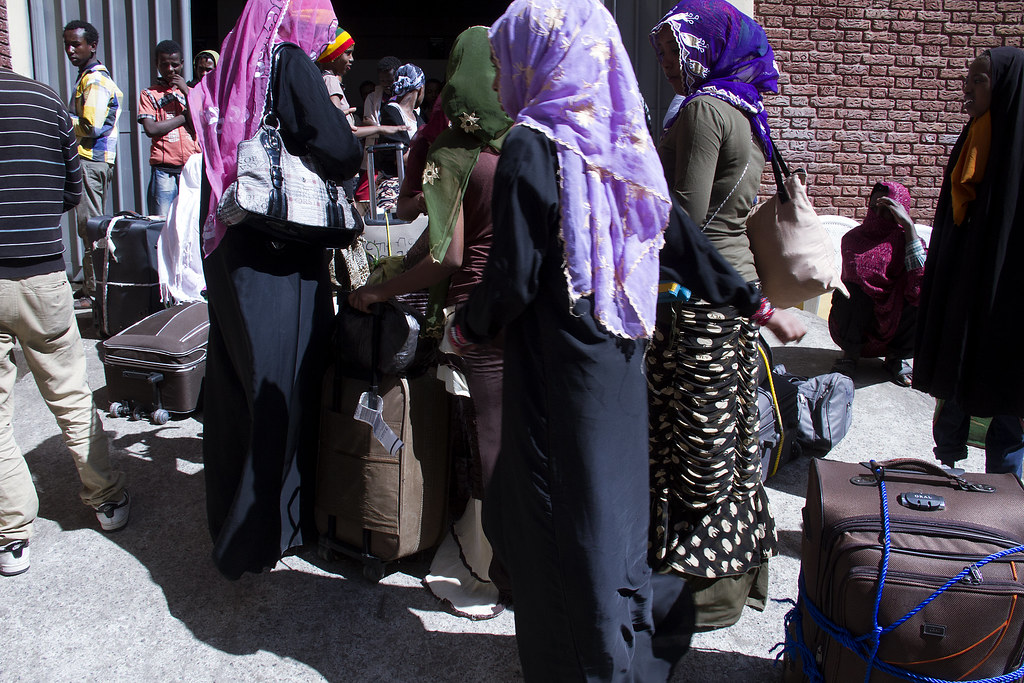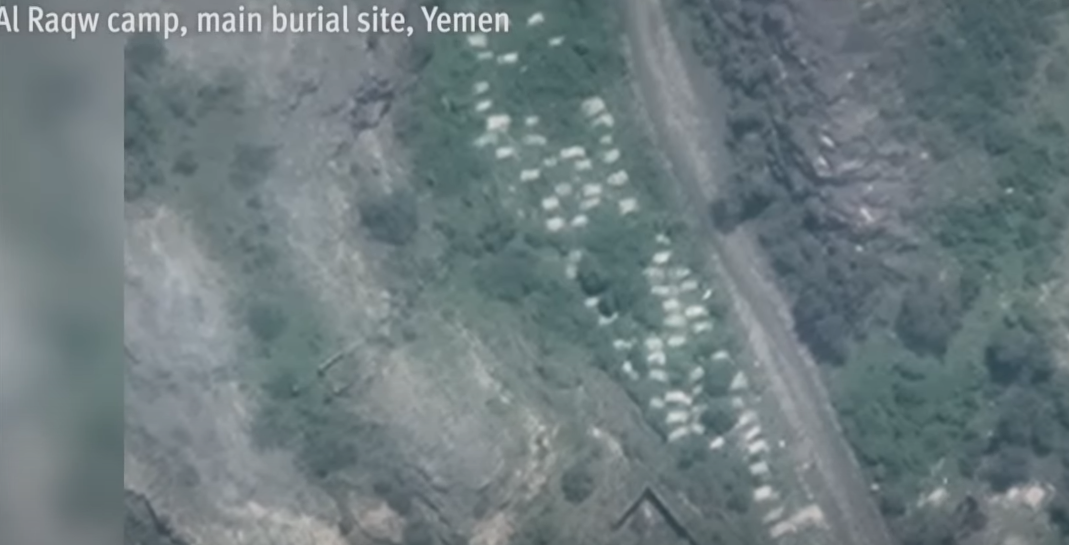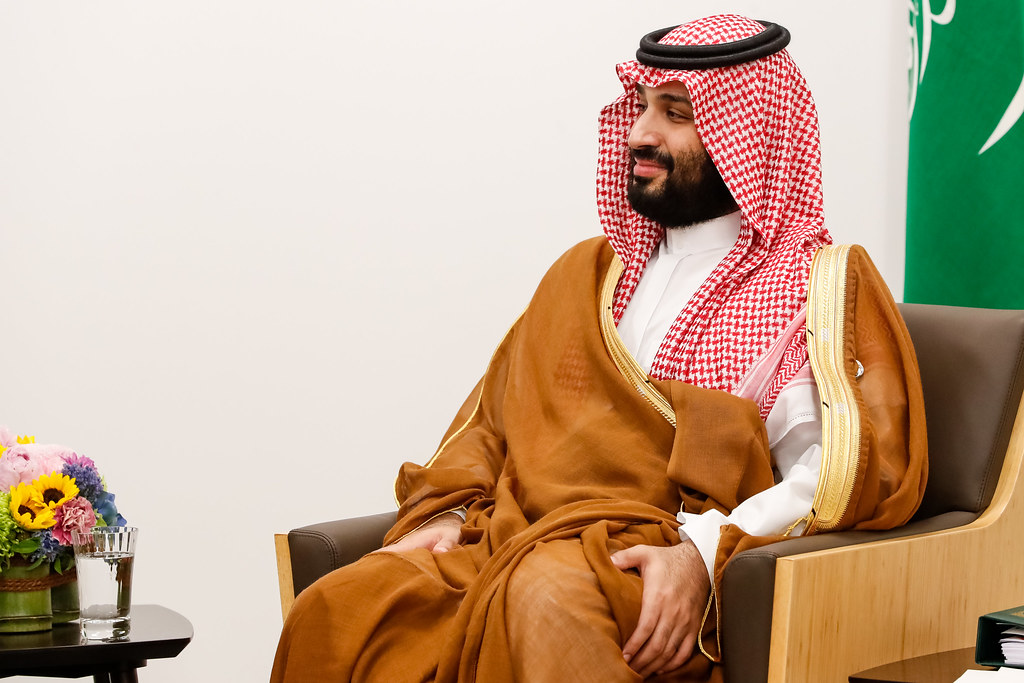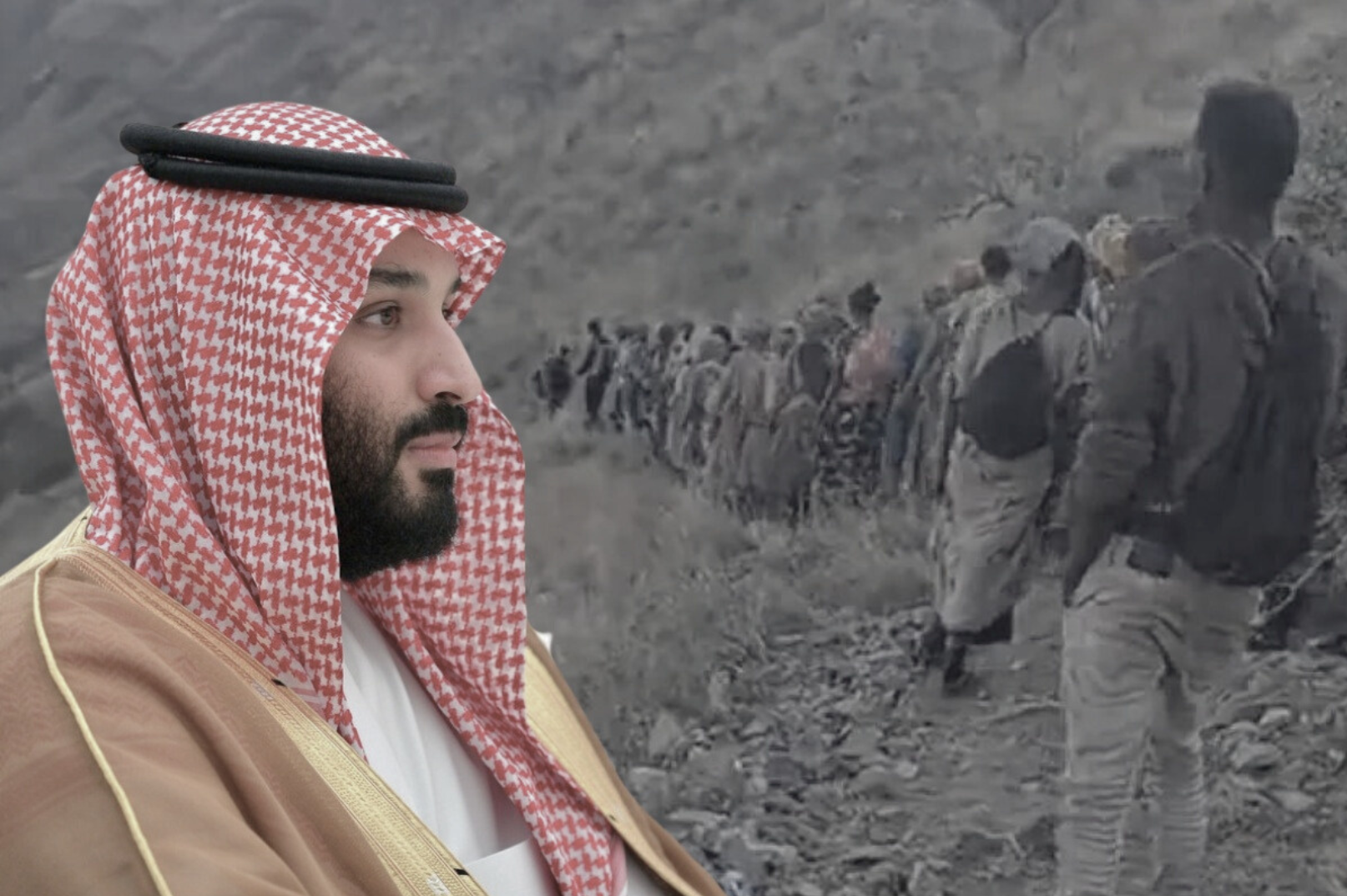A damning new investigation accuses Saudi Arabia of deliberately slaughtering hundreds of migrants attempting to cross the Saudi-Yemeni border over the past 12 months. The 73-page report, based on extensive eyewitness testimony and expert analysis of satellite imagery, as well as footage of injuries, lists a litany of allegations against Saudi border guards. It describes them as having “used explosive weapons and shot people at close range, including women and children, in a pattern that is widespread and systematic”.
Not only did guards fire on people attempting to enter Saudi Arabia, the report states, they “also fired explosive weapons at migrants who had just been released from temporary Saudi detention and were attempting to flee back to Yemen”.
Thanks to the House of Saud’s long-standing, cosy relationship with western imperialism, it has been able to commit these horrors with impunity, while receiving vast quantities of money and arms, without interruption.
Migrant abuse
The victims identified in the report largely originate from Ethiopia. There are an estimated 750,000 Ethiopians currently residing in Saudi Arabia, many without documentation, having utilised illegal routes to flee grinding poverty and war – itself facilitated and exacerbated by imperialist interference.
Those who are able to live and work in the country overwhelmingly face horrendous conditions, racism, contract slavery, and abuse, facilitated by the infamous kafala (or ‘sponsorship’) system. This leaves migrant workers at the mercy of their employers, with no route to regularising their residency.
During the height of the COVID-19 pandemic, the Ethiopian government was forced to repatriate thousands of migrants, following reports that they were subject to torture in overcrowded, unsanitary camps. This year, the government in Addis Ababa reversed this policy, handing over 500,000 Ethiopian women to the tender mercies of Saudi Arabia as housemaids, in exchange for a boost to the country’s foreign currency reserves.
 Migrants endure brutal treatment at the hands of the Saudi regime / Image: Flickr, UNICEF Ethiopia
Migrants endure brutal treatment at the hands of the Saudi regime / Image: Flickr, UNICEF Ethiopia
The latest allegations are the continuation of a pattern. Migrants make up over 75 percent of the private sector labour force in Saudi Arabia.
Having readily exploited this cheap labour to reap huge profits for decades, the Saudi ruling class now demagogically blames ‘illegal immigrants’ for creating unemployment amongst Saudi nationals, and for feeding the black market.
In the past several years, Riyadh has viciously cracked down on undocumented migrants. As a result, hundreds of thousands of migrants have been rounded up and detained for months or years at a time before deportation.
Former detainees have described dire conditions in overcrowded cells, with no ventilation and inadequate access to food, water, sanitation, accommodation, and healthcare. Inmates are exposed to deadly diseases such as tuberculosis.
Pregnant women and children as young as one-month have been documented in Saudi detention centres, where guards are alleged to inflict beatings, electrocutions, and other physical tortures for infractions such as protesting the denial of medical care and lack of food.
Half a million Ethiopian migrants were detained and deported by Saudi Arabia between 2017 and 2022. Some never make it out of detention. As Hussein, a former detainee, said of a cellmate who perished after a beating:
“He had pain in the ribs and was not taken to a hospital. We begged prison guards to take his body after he died... They took out his body two days later.”
And as the new report testifies, many migrants meet their end before even reaching the Saudi border.
A perilous crossing
For decades, Ethiopian migrants (in addition to a smaller number from Somalia and Eritrea) have attempted the so-called ‘Eastern’ or ‘Yemeni Route’ from the Horn of Africa, across the Gulf of Aden, through Yemen, and into Saudi Arabia.
This highly perilous passage is controlled by people smugglers, who subject these huddled masses to terrible abuse and extortion. Since 2014, many have been caught in the crossfire between Houthi forces in Yemen and the Saudi regime, facing detention, abuse, and outright murder at the hands of both.
After a dangerous boat crossing from Djibouti, migrants wind up at temporary settlements in Yemen. This includes Al Thabit, described as follows by Hamza, a 19-year-old man from Oromia:
“There are some shelters made from plastic sheets…[It] has a compound which is built with wire…There are hundreds of thousands of migrants there. Once you get in you cannot get out…Once you submit a payment to the guards, the smugglers come and take you to the border.”
Witnesses testified that those unable to pay fees to Yemeni smugglers were forced to lead groups of up to 200 people, putting them first in the firing line as human shields. Attacks by Saudi border guards often involve explosive weapons, including mortars and rocket launchers.
This border-crossing journey is so difficult that many migrants are forced to run the deadly gauntlet again and again over the course of weeks or months. For instance, Hadiya, a 20-year-old woman from East Hararghe, stated:
“We were [at Al Thabit] for three months, because we were trying to cross all this time. We would try and cross and then the border guards would push us back and then we would try and again and we would be pushed back, and this happened for three months.”
Often, groups of migrants suffer horrendous casualties. Describing one such attempt in October 2022, Hadiya said:
“I was with 170 people. Most of them were women, and there were kids also. The Saudi [border guards] were firing at us from the back of a car. I saw them throwing something from a car…When they [the Saudi border guards] fired at us people lost their hands and legs and we couldn’t help them because we had to help ourselves. I saw people killed with my own eyes. I saw 20 people dead while I was walking.”
Those migrants who are apprehended report being asked by guards in which limb they would like to be shot. Others say guards beat them with rocks and metal bars.
This carnival of carnage is common knowledge. Between 1 January and 30 April 2022, the UN reported allegations of “artillery shelling and small arms fire allegedly by Saudi security forces causing the deaths of up to 430 and injuring 650 migrants, including refugees and asylum seekers”.
Human Rights Watch’s latest report provides detailed supporting evidence of these atrocities. The body interviewed over 40 people who attempted the crossing, and analysed over 350 videos and photographs, along with hundreds of square kilometres of satellite imagery captured between February 2022 and July 2023.
The imagery revealed dead and wounded on the trail, as well as in migrant camps and medical centres, along with expanding burial sites outside of camps. But it is the witness testimony that truly paints a hellish picture.
“They fired on us like rain”
Dahabo, a 20-year-old woman from Oromia, gave the following account of crossing the Yemen-Saudi border in December 2022:
“Immediately after we arrived [at the border], they [the Saudi border guards] fired on us…A lot of people were dying. In a group of 200 migrants only 50 people survived. The people who shot us were Saudi government military – the uniform was multiple colors. It was like green or white or something. Everyone knows it is Saudi military – the smugglers told us – they are Saudi military, they are border guards.”

Analysis of footage of the dead and wounded by forensic experts concluded that their injuries exhibited “clear patterns consistent with the explosion of munitions with capacity to produce heat and fragmentation”, while others have “characteristics consistent with gunshot wounds”.
One interviewee states that “from 150 [in his group], only 7 people survived…There were remains of people everywhere, scattered everywhere”. Another went to the Saudi border to collect the body of a girl from his village, and said:
“Her body was piled up on top of 20 bodies…it is really impossible to count the number. It is beyond the imagination.”
One especially harrowing account concerns an attempted crossing in June 2023, in which migrants were slaughtered even after being apprehended and pushed back. As Munira, a 20-year-old-woman from Oromia, described:
“The Saudis picked us up from the detention centre in Daer and put us in a minibus going back to the Yemen border. When they released us, they created a kind of chaos; they screamed at us to ‘get out of the car and get away’. They trapped us into the same lane, they didn’t want us to spread out in case we tried to go back to Saudi I think, and this is when they started to fire mortars – to keep us into the mountain line, they fired the mortar from left and right. When we were one kilometre away, the border guards could see us. We were resting together after running a lot…and that’s when they fired mortars on our group. Directly at us. There were 20 in our group and only ten survived. Some of the mortars hit the rocks and then the [fragments of the] rock hit us…The weapon looks like a rocket launcher, it had six ‘mouths’, six holes from where they fire and it was fired from the back of a vehicle – it fires several at the same time. They fired on us like rain.
“When I remember, I cry...I saw a guy calling for help, he lost both his legs. He was screaming; he was saying, ‘Are you leaving me here? Please don’t leave me’. We couldn’t help him because we were running for our lives. There are several people who lost their body parts.”
The sadism depicted here chills one’s blood. Munira’s story was corroborated by an IFEG pathologist, who reviewed a photograph of the wounds to her face and concluded they are consistent with explosive fragmentation. Interviewed at a medical centre in Qatabir (a district in Saada), she explained she has no choice but to relive the nightmare again as soon as she recovers:
“We can’t afford life in Yemen, there is no food, and we can’t survive, we will die. Even tonight or tomorrow morning we will try to cross [the border] again.”
This is the choice afforded to victims of war and poverty: starvation on one side of the border, or being blown to bits trying to cross to the other.
Imperialist hypocrisy
The Saudi regime has of course flatly denied all these allegations, and seemingly applied pressure to keep the story under wraps. For instance, an Al Jazeera article commenting on the Human Rights Watch report has since been taken down.
Previously, Riyadh tried to clamp down on migrants sharing their ‘distressing’ experiences on social media. It has also invested $6.3bn on sporting events (more than quadruple the amount spent over the previous six-year period) – a ‘sports-washing’ process to launder its reputation and distract from its heinous crimes.
Of course, there is scant chance of the Saudi regime ever having to answer for its barbarity as long as it retains the diplomatic protection of its western allies. While the close relationship between western imperialism and Saudi Arabia has wavered somewhat in recent months, due to the regime’s closer relations with Russia, Riyadh remains a critical vector for western interests in the Middle East.
This explains the shameful conduct of western imperialism towards the seven-year Saudi intervention in Yemen – one of the worst humanitarian crises in recent memory, which claimed hundreds of thousands of lives.
Far from merely ignoring the bloodshed, the imperialists continue to sell arms to Riyadh, pocketing tidy profits in the process. For instance, over the course of this conflict, some £27bn in arms was licensed for export from the UK to the Saudi-led coalition.
The fraternity between western imperialism and the head-chopping despots in Saudi Arabia throws into sharp relief the former’s abject hypocrisy in proselytising about the ‘atrocities’ committed by their ‘anti-democratic’ adversaries in Beijing and Moscow.
 Even as these new allegations about migrant killings came to light, Rishi Sunak’s government in Britain was in the process of arranging a lavish state visit by the de facto Saudi ruler, Crown Prince Mohammed bin Salman / Image: Palácio do Planalto, Flickr
Even as these new allegations about migrant killings came to light, Rishi Sunak’s government in Britain was in the process of arranging a lavish state visit by the de facto Saudi ruler, Crown Prince Mohammed bin Salman / Image: Palácio do Planalto, Flickr
While Russian ‘brutality’ in Ukraine is met by western sanctions, Saudi Arabia is showered with weapons and wealth. In fact, the Ukraine War has been much to the liking of the House of Saud, helping to push up the market value of their oil.
Even as these new allegations about migrant killings came to light, Rishi Sunak’s government in Britain was in the process of arranging a lavish state visit by the de facto Saudi ruler, Crown Prince Mohammed bin Salman.
Judging by their current treatment of migrants, one wonders whether the British ruling class would mirror the Saudi approach to migration if they could get away with it. Already, the Tories have attempted to forcibly deport immigrants to Rwanda, and crammed unprocessed migrants into disease-ridden prison barges, while trying to whip up a racist hysteria around an armada of ‘small boat crossings’.
Similarly, Frontex forces jealousy police the shores of ‘Fortress Europe’, while hundreds of men, women and children drown annually in attempted border crossings, in many instances following deliberate ‘pushback’ operations by European coast guards. Elsewhere, over 800 people died attempting to cross the US-Mexico border from October 2021-22 – the deadliest twelve months on record. Those who survive often end up caged in ICE facilities.
The ruling classes in Saudi Arabia and the West alike have this much in common: all serve a brutal capitalist system, and have the blood of countless migrants on their hands.
The ceaseless nightmare endured by migrants at the Saudi border and around the world are testament to the truth of Lenin’s words that capitalism is “horror without end”.
Communists stand for a revolutionary end to this despicable system. We must fight to throw it into the dustbin of history, along with the bloodstained criminals in Riyadh and their imperialist benefactors. Only then will their victims know justice.

